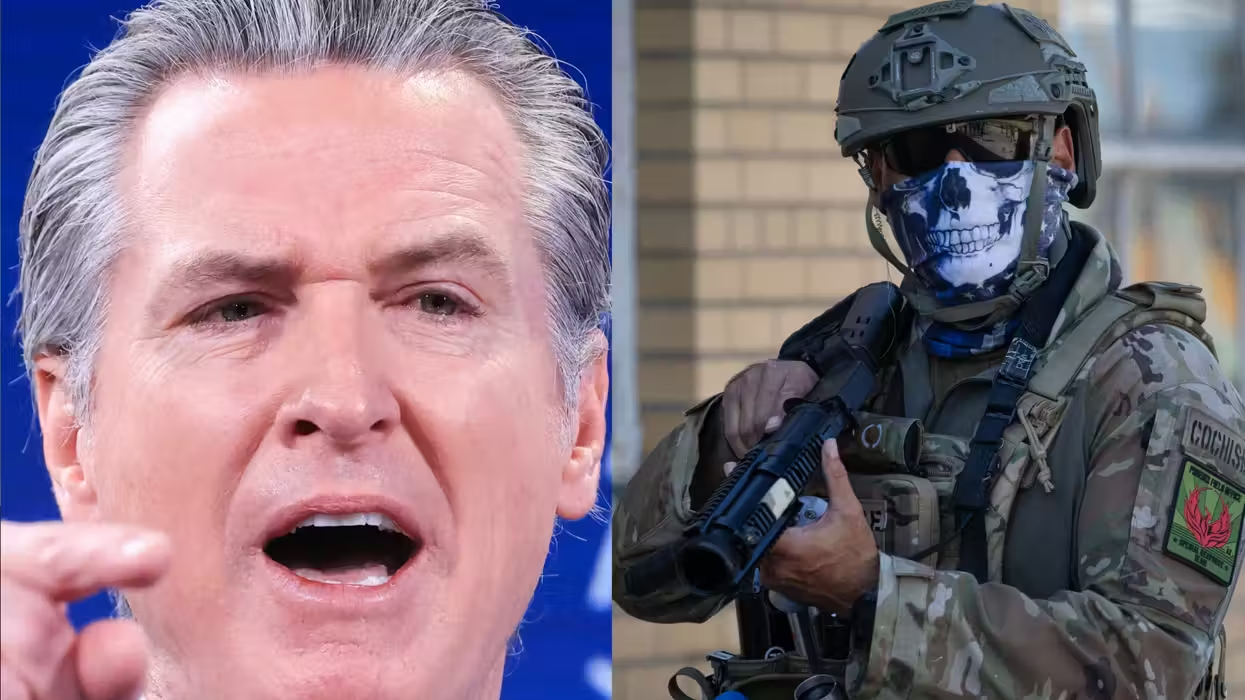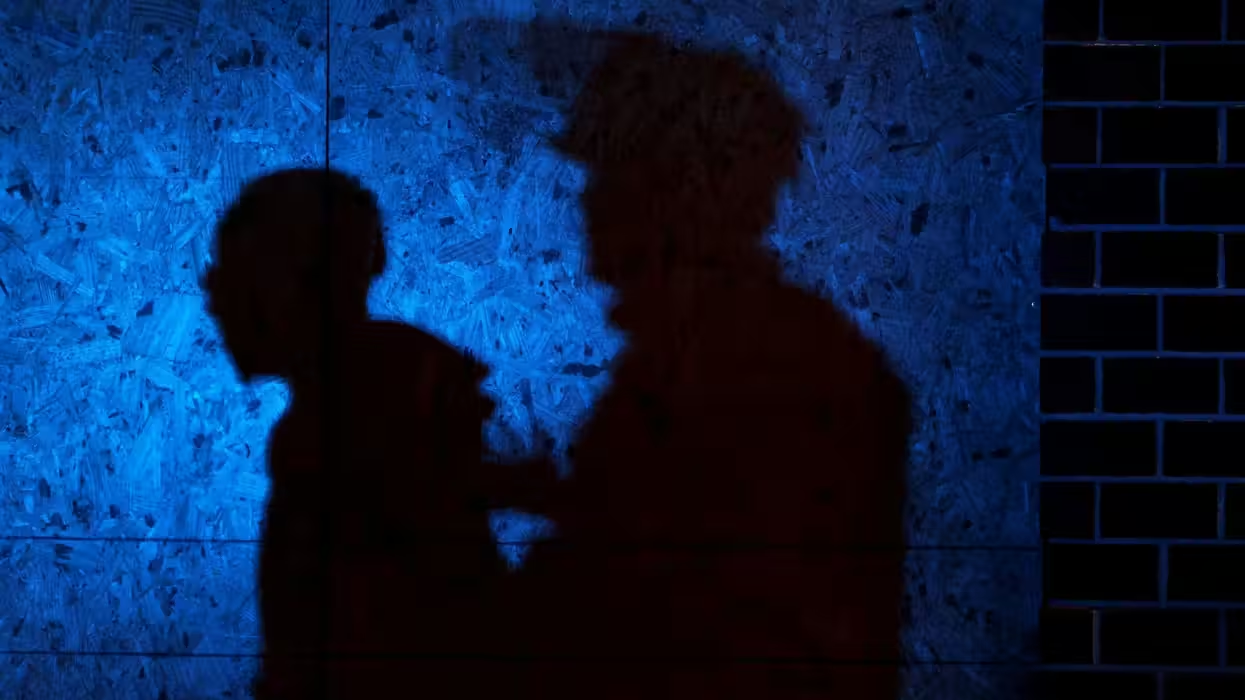Despite the outrage expressed by some over the NSA's domestic surveillance programs, roughly 56 percent of Americans believe it is "acceptable" for the spy agency to secretly collect the telephone call records of millions of Americans, according to a new Washington Post-Pew Research Center poll.
Additionally, 45 percent of Americans say the government should be able to go even further and monitor all online activity if it would prevent future terrorist attacks. The majority of respondents, 52 percent, say that type of indiscriminate monitoring should not occur.
 BLUFFDALE, UT - JUNE 10: A new National Security Agency (NSA) data center is seen June 10, 2013 in Bluffdale, Utah. The center, a large data farm that is set to open in the fall of 2013, will be the largest of several interconnected NSA data centers spread throughout the country. The NSA has come under scutiny after two large scale data survalliance programs were leaked to the press. Credit: Getty Images
BLUFFDALE, UT - JUNE 10: A new National Security Agency (NSA) data center is seen June 10, 2013 in Bluffdale, Utah. The center, a large data farm that is set to open in the fall of 2013, will be the largest of several interconnected NSA data centers spread throughout the country. The NSA has come under scutiny after two large scale data survalliance programs were leaked to the press. Credit: Getty Images
 A military no trespassing sign is seen in front of Utah's NSA Data Center in Bluffdale, Utah, Friday, June 7, 2013. President Barack Obama vigorously defended sweeping secret surveillance into America's phone records and foreigners' Internet use, declaring "we have to make choices as a society." It was revealed late Wednesday that the National Security Agency has been collecting the phone records of hundreds of millions of U.S. phone customers. Credit: AP
A military no trespassing sign is seen in front of Utah's NSA Data Center in Bluffdale, Utah, Friday, June 7, 2013. President Barack Obama vigorously defended sweeping secret surveillance into America's phone records and foreigners' Internet use, declaring "we have to make choices as a society." It was revealed late Wednesday that the National Security Agency has been collecting the phone records of hundreds of millions of U.S. phone customers. Credit: AP
Clearly, this is a contentious issue. News coverage over the past week has mostly focused on the argument against the NSA's giant surveillance programs. But what about the argument in favor of the government's surveillance programs?
In his weekly column for the Washington Post, Marc A. Thiessen calls out critics who believe the NSA's surveillance is overreaching and reminiscent of George Orwell's "1984."
"If the critics don’t think the NSA should be collecting this information, perhaps they would like to explain just how they would have us stop new terrorist attacks," he writes.
Thiessen goes on to point out the various ways that President Barack Obama has stifled the federal government's ability to gather intelligence. By his estimation, without the ability to monitor the "enemy's phone calls and Internet communications," there would be no effective way to protect the country.
"Terrorists don’t have armies or navies we can track with satellites. There are only three ways we can get information to prevent terrorist attacks:
The first is interrogation — getting the terrorists to tell us their plans. But thanks to Barack Obama, we don’t do that anymore.
The second is penetration, either by infiltrating agents into al-Qaeda or by recruiting operatives from within the enemy’s ranks. This is incredibly hard — and it got much harder, thanks to the leak exposing a double agent, recruited in London by British intelligence, who had penetrated al-Qaeda in the Arabian Peninsula and helped us break up a new underwear bomb plot in Yemen — forcing the extraction of the agent.
That leaves signals intelligence — monitoring the enemy’s phone calls and Internet communications — as our principal source of intelligence to stop terrorist plots. Now the same critics who demanded Obama end CIA interrogations are outraged that he is using signals intelligence to track the terrorists. Well, without interrogations or signals intelligence, how exactly is he supposed to protect the country?
Thiessen also condemned Edward Snowden, the NSA whistleblower who revealed the NSA's surveillance abilities. "[W]hen those programs are exposed by leaks, it is not whistleblowing — it’s a felony," he concluded.
Snowden risks decades in jail for the unauthorized disclosures if the U.S. can extradite him from Hong Kong.
Many who are against the blanket surveillance tactics of the NSA do not want to revoke the American intelligence community's authority to monitor the phone and Internet activity of suspected terrorists, but rather just the American citizens who are not suspected of committing a crime.
Does Thiessen have a point in his analysis? Weigh in on the privacy debate in the comments section below.
Read Thiessen's entire column here.

 BLUFFDALE, UT - JUNE 10: A new National Security Agency (NSA) data center is seen June 10, 2013 in Bluffdale, Utah. The center, a large data farm that is set to open in the fall of 2013, will be the largest of several interconnected NSA data centers spread throughout the country. The NSA has come under scutiny after two large scale data survalliance programs were leaked to the press. Credit: Getty Images
BLUFFDALE, UT - JUNE 10: A new National Security Agency (NSA) data center is seen June 10, 2013 in Bluffdale, Utah. The center, a large data farm that is set to open in the fall of 2013, will be the largest of several interconnected NSA data centers spread throughout the country. The NSA has come under scutiny after two large scale data survalliance programs were leaked to the press. Credit: Getty Images






